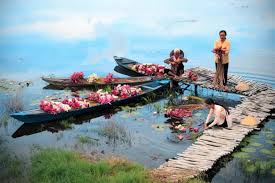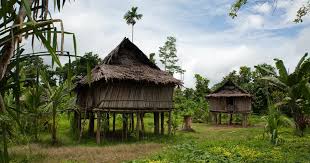The Asia Women and Rivers Congress 2024, held from June 4-6 in Chiang Rai, Thailand, witnessed the gathering of over 120 women leaders. This significant event aimed to facilitate transboundary cooperation across Asia, empowering women leaders in riverine communities to co-create a vision for the future and build a robust network.
Introduction to the Congress
Purpose and Goals
The primary goal of the Congress was to unite women from various sectors—riverine and indigenous communities, civil society, academia, and policymakers. The aim was to address water, energy, and climate change challenges in transboundary river basins flowing across South and Southeast Asia.
Significance of the Event
The Congress provided a platform for these women leaders to share experiences, knowledge, and strategies. The emphasis was on collaborative efforts for women-led river protection campaigns and responses to the challenges faced by their communities.
Key Participants and Contributions
Arunachal Pradesh Delegation
Among the notable participants was the Arunachal Pradesh team, including Bhanu Tatak from the Siang Indigenous Farmer’s Forum (SIFF). Tatak, an active member of the anti-dam forum in Siang and a steering committee member of the Asia Indigenous People’s Network on Extractive Energy (AIPNEE), received the prestigious Bhagirath Prayas Samman from the India Rivers Forum last year for her exceptional work in river conservation.
Accompanying Members
Tatak was accompanied by Karry Padu, an independent filmmaker known for her impactful films like I am Property (2020), The Vivid Project (2018), and Canada Di Flight (2016). Another significant attendee was Ajoh Mihu, an independent researcher and member of the Dibang Resistance.
Highlighting Long-Term Advocacy
Anti-Dam Movement in Siang and Dibang
Bhanu Tatak raised concerns and shared stories of the anti-dam movement spanning over 15 years in the Siang and Dibang districts. Her advocacy efforts have been instrumental in bringing attention to the environmental and social impacts of dam projects in these regions.
Challenges and Collaborative Strategies
Water Conflict in Asia
A press release from the Congress highlighted that water conflicts in Asia often arise between river developers and local communities adversely impacted by development projects. Climate change exacerbates these conflicts, making them more complex and challenging to resolve.
Role of Women in Water Management
Despite the clear linkages between gender, water, energy, and climate change, women’s roles and leadership have not been a significant part of the discourse in transboundary water management. The Congress aimed to change this narrative by emphasizing the importance of women’s participation in these crucial areas.
Sessions and Discussions
Focus Areas
The Congress included sessions on various focus areas, such as:
- Transboundary Water Cooperation: Strategies for effective cross-border collaboration.
- Climate Change Adaptation: Developing resilient communities in the face of climate change.
- Sustainable Energy Solutions: Exploring renewable energy options and their impact on river ecosystems.
Knowledge Sharing and Networking
Participants engaged in knowledge-sharing sessions, where they exchanged best practices and innovative approaches to river conservation. The networking opportunities allowed them to build alliances and strengthen their collective efforts.
Key Outcomes and Future Directions
Vision for the Future
The Congress concluded with a collective vision for the future, emphasizing the need for continued cooperation and the implementation of the strategies discussed. Participants committed to supporting each other in their efforts to protect and conserve river ecosystems.
Building a Strong Network
The establishment of a robust network was one of the key outcomes of the Congress. This network will serve as a platform for ongoing communication, collaboration, and support among women leaders in riverine communities across Asia.
Impact of the Congress
Empowering Women Leaders
The Congress successfully empowered women leaders by providing them with the tools, knowledge, and connections needed to drive positive change in their communities. It highlighted the crucial role of women in addressing water, energy, and climate change challenges.
Raising Awareness
By bringing together diverse voices and perspectives, the Congress raised awareness about the critical issues facing transboundary river basins. It underscored the importance of inclusive and equitable water management practices.
The Asia Women and Rivers Congress 2024 was a landmark event that brought together over 120 women leaders to discuss and address the pressing challenges facing riverine communities across Asia. The Congress facilitated valuable knowledge sharing, fostered transboundary cooperation, and empowered women to take on leadership roles in river conservation. As these leaders continue to collaborate and implement the strategies discussed, the impact of their efforts will be felt across the region, contributing to the sustainable management of Asia’s vital water resources.








